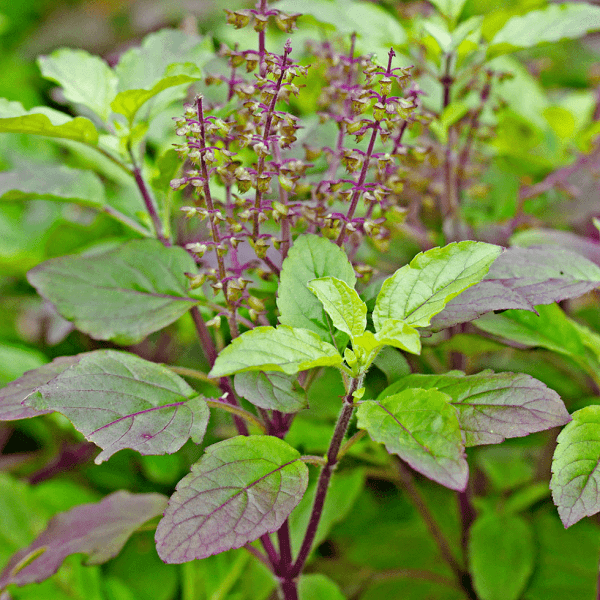
Krishna Tulsi - Herb Seeds
(MRP Inclusive of all taxes)
- Shipping ₹79 for entire order
- Dispatch in 7 days
- Country of origin: India

(MRP Inclusive of all taxes)
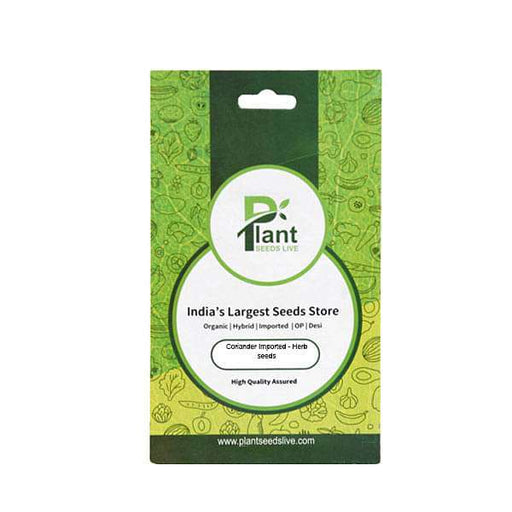
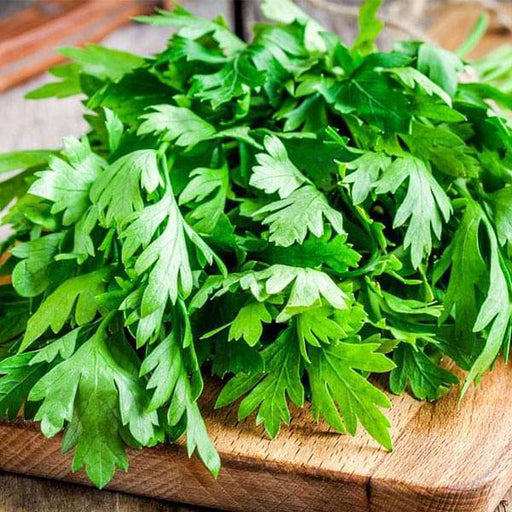 Save 25%
Save 25%
Coriander Imported - Herb Seeds Coriander (Coriandrum sativum), also known as cilantro, is a versatile herb cherished for its aromatic lea...
View full details
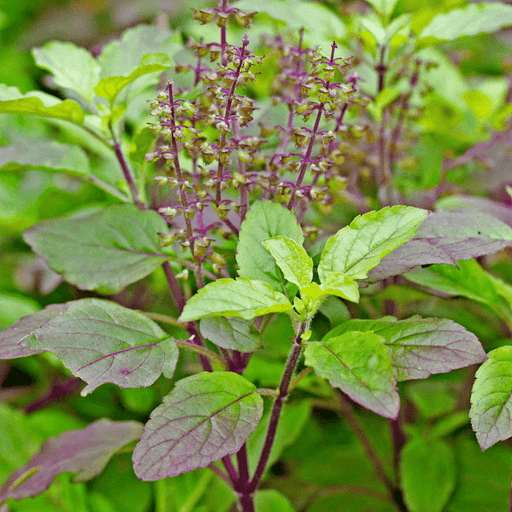 Save 35%
Save 35%
Krishna Tulsi - Herb Seeds Krishna Tulsi, also known as Ocimum sanctum or Holy Basil, is a revered herb in Ayurvedic medicine, celebrated ...
View full details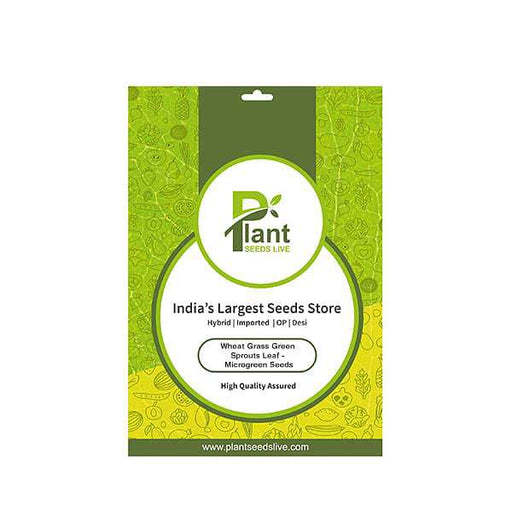
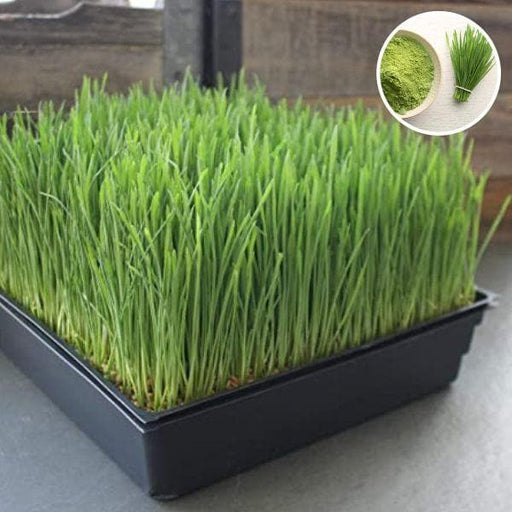 Save 35%
Save 35%
Wheat Grass Green Sprouts Leaf - Microgreen Seeds Wheat Grass Green Sprouts Leaf microgreen seeds are a powerhouse of nutrition, packed wi...
View full details
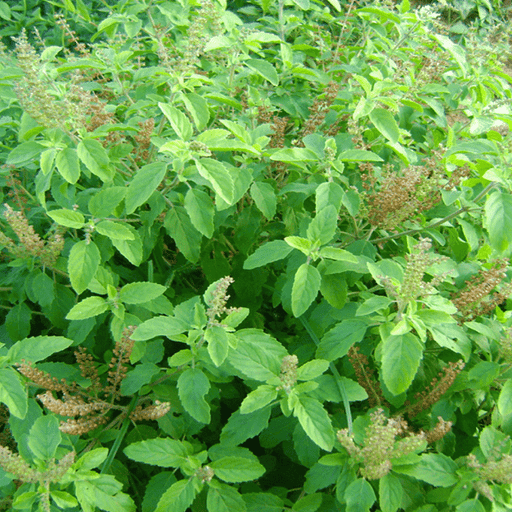 Save 35%
Save 35%
Rama Tulsi - Herb Seeds Rama Tulsi, also known as Ocimum sanctum or Holy Basil, is a revered herb in Ayurvedic medicine, celebrated for it...
View full details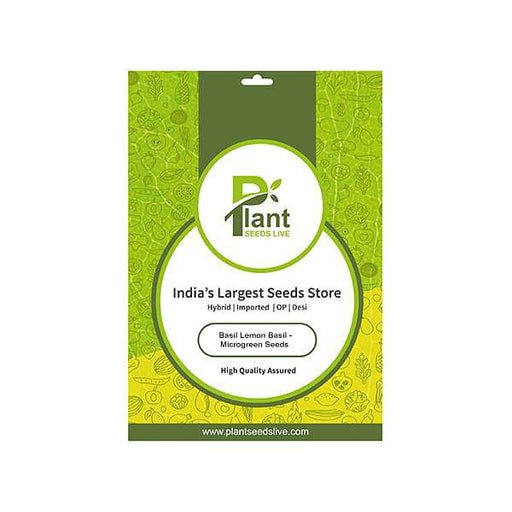
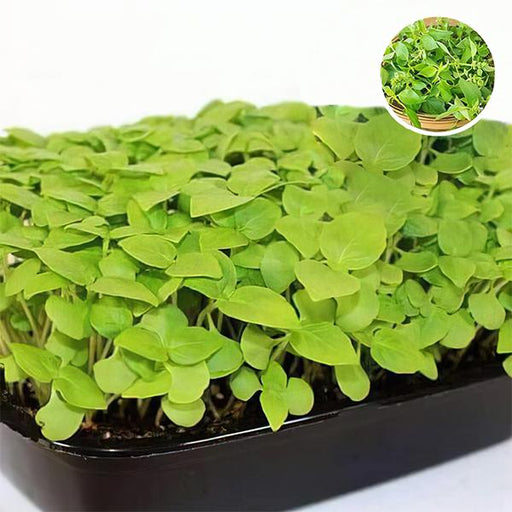 Save 35%
Save 35%
Basil Lemon Basil - Microgreen Seeds Basil Lemon Basil microgreen seeds offer a unique twist on traditional basil, delivering a zesty lemo...
View full details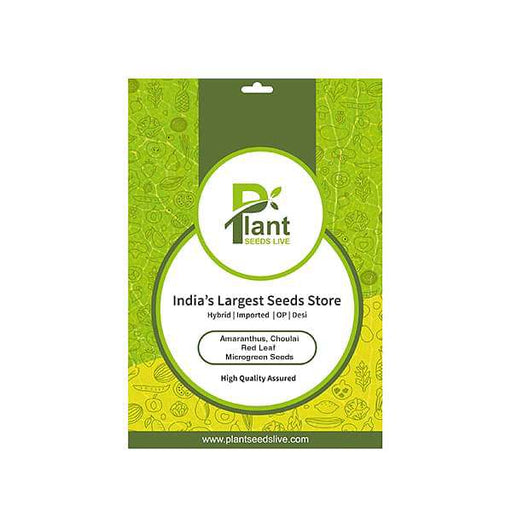
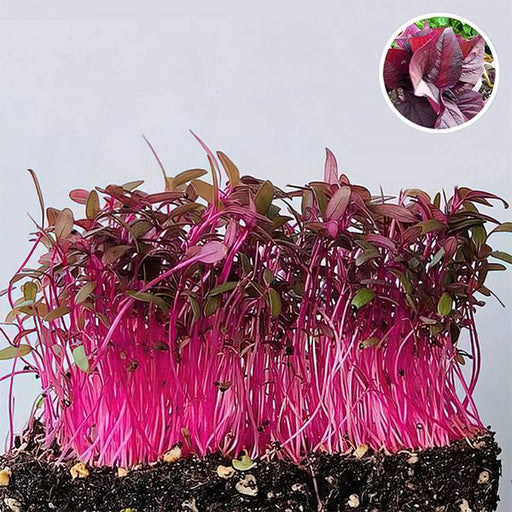 Save 35%
Save 35%
Amaranthus, Choulai Red Leaf - Microgreen Seeds Discover the vibrant and nutritious Amaranthus, Choulai Red Leaf microgreen seeds, perfect...
View full details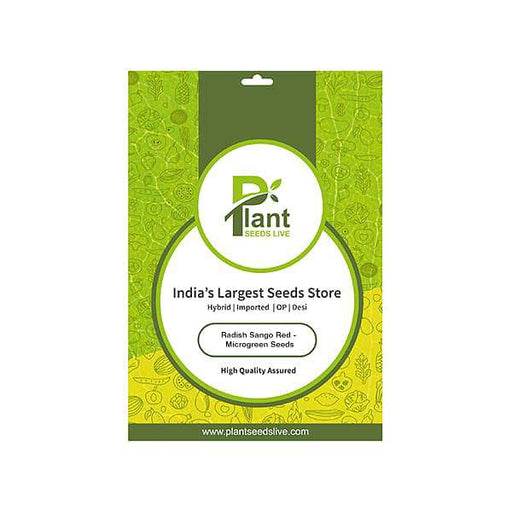
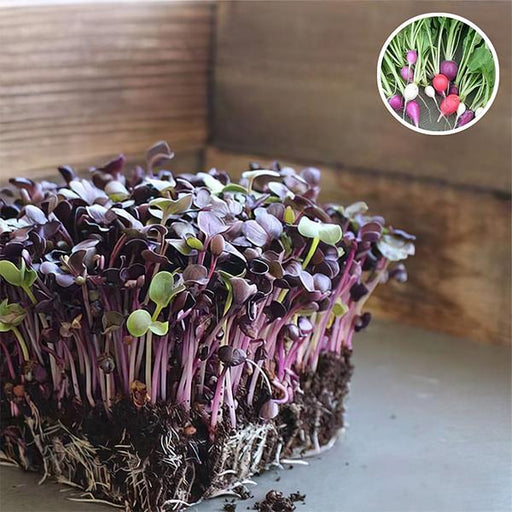 Save 35%
Save 35%
Radish Sango Red - Microgreen Seeds Radish Sango Red microgreens are a vibrant addition to any garden or kitchen. Known for their striking...
View full details
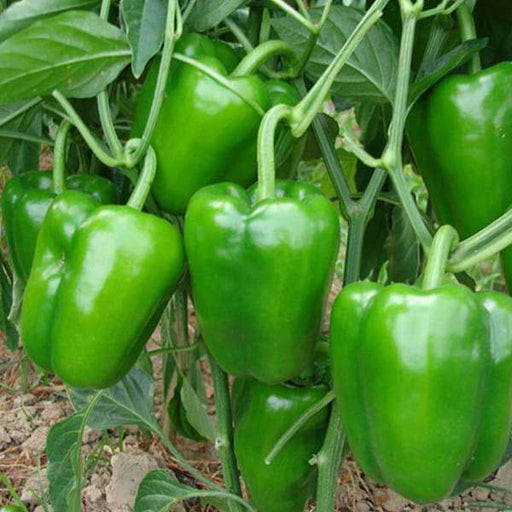 Sold out
Sold out
Capsicum Green - Desi Vegetable Seeds Capsicum Green, also known as bell pepper, is a vibrant and nutritious addition to your garden. Thes...
View full details
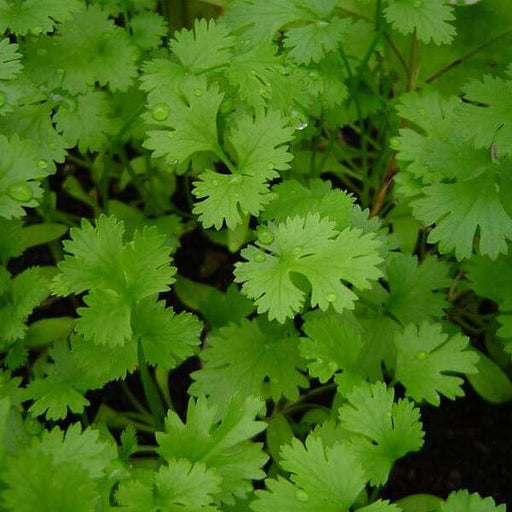 Save 25%
Save 25%
Coriander Panipat - Desi Vegetable Seeds Coriander Panipat is a premium variety of coriander seeds, cherished for its aromatic leaves and ...
View full details
 Save 25%
Save 25%
Cherry Tomato, Cherry Tomato Honey - Vegetable Seeds Discover the delightful world of Cherry Tomato Honey seeds, perfect for home gardener...
View full details
 Save 25%
Save 25%
Tomato Pusa Ruby - Desi Vegetable Seeds The Tomato Pusa Ruby is a premium variety of tomato seeds, renowned for its vibrant red color, jui...
View full details
 Save 25%
Save 25%
Spinach All Green - Desi Vegetable Seeds Introducing the Spinach All Green - Desi Vegetable Seeds, a premium variety of spinach that thriv...
View full details
 Save 25%
Save 25%
Tomato Ped - Desi Vegetable Seeds Introducing the Tomato Ped - Desi Vegetable Seeds, a premium selection of heirloom tomato seeds that pro...
View full details
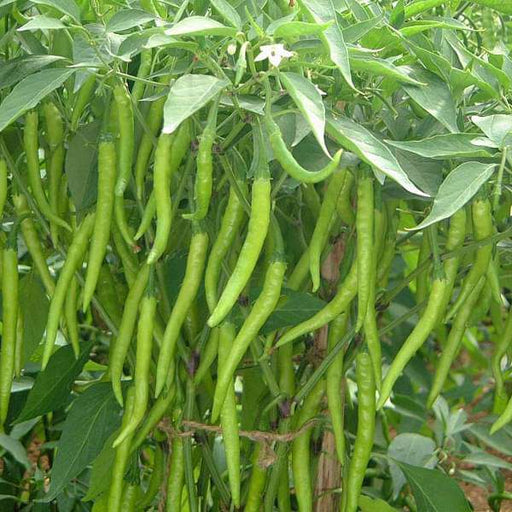 Save 25%
Save 25%
Chilli Surajmukhi - Desi Vegetable Seeds Introducing the Chilli Surajmukhi, a unique variety of desi vegetable seeds that brings a burst o...
View full details
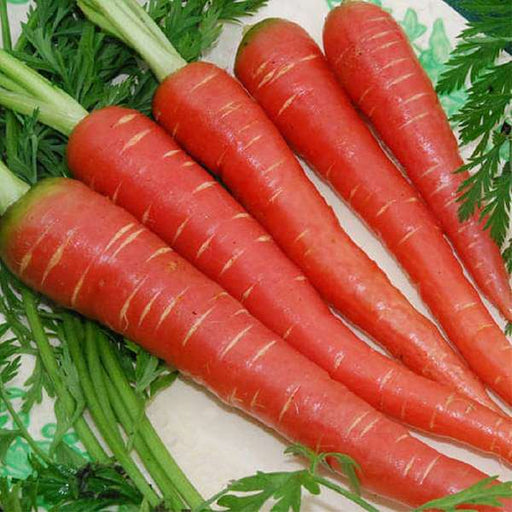 Save 25%
Save 25%
Carrot Red Long - Desi Vegetable Seeds Introducing the Carrot Red Long - Desi Vegetable Seeds, a premium variety known for its vibrant col...
View full details
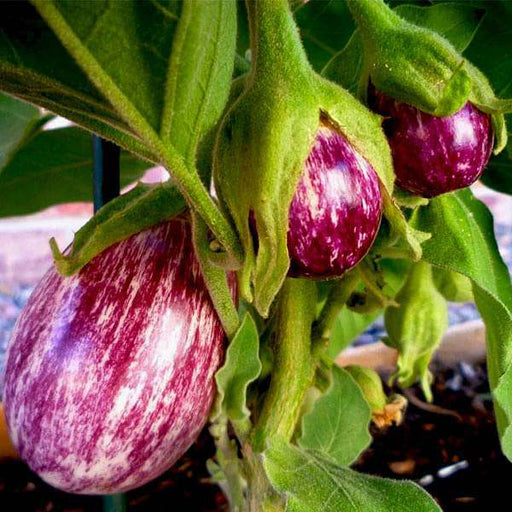 Save 25%
Save 25%
Brinjal Purple Round - Desi Vegetable Seeds Discover the rich flavors and vibrant colors of Brinjal Purple Round, a staple in Indian cuisi...
View full details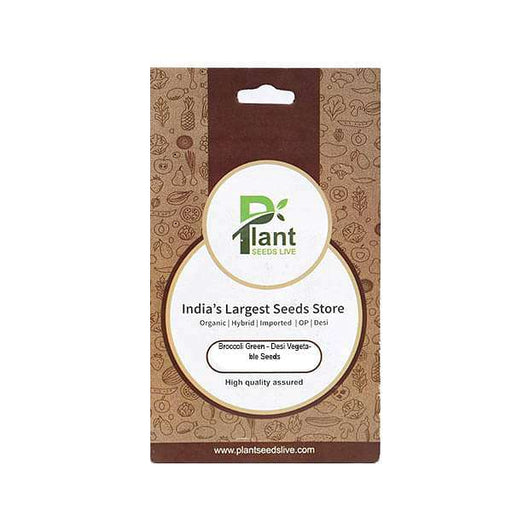
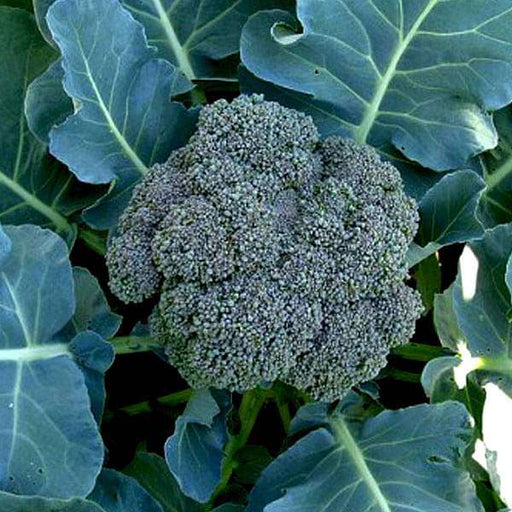 Save 25%
Save 25%
Broccoli Green - Desi Vegetable Seeds Discover the vibrant world of Broccoli Green with our premium Desi Vegetable Seeds. Known for its ri...
View full details
 Save 35%
Save 35%
Best 6 Plants for Perfect Indoor Garden Transform your living space into a lush oasis with our curated collection of the Best 6 Plants for a...
View full details
 Save up to 50%
Save up to 50%
Mini Succulent Garden Pack Transform your space with our Mini Succulent Garden Pack, featuring a delightful collection of 4 any variety beautiful s...
View full details
 Save 30%
Save 30%
5 Best Fragrant Plants Transform your garden or indoor space into a fragrant paradise with our curated selection of the 5 Best Fragrant Plants. Th...
View full details
 Save 24%
Save 24%
Set of 2 Bonsai Looking Grafted Adeniums Transform your indoor or outdoor space with our exquisite Set of 2 Bonsai Looking Grafted Adenium...
View full details Save 45%
Save 45%
Top 4 Die Hard Succulents Pack Transform your indoor or outdoor space with our Top 4 Die Hard Succulents Pack, featuring a curated selecti...
View full details
 Save 30%
Save 30%
5 Best Indoor Plants Pack Transform your living space into a lush oasis with our '5 Best Indoor Plants Pack.' This carefully curated collection fe...
View full details
 Save 25%
Save 25%
Set of 4 Evergreen Air Purifier Plant Pack Transform your indoor space into a lush, green oasis with our Set of 4 Evergreen Air Purifier Pla...
View full details| SrNo | Item Name |
|---|---|
| 1 | Krishna Tulsi - Herb Seeds |
Krishna Tulsi, also known as Ocimum sanctum or Holy Basil, is a revered herb in Ayurvedic medicine, celebrated for its myriad health benefits and spiritual significance. This aromatic plant is characterized by its dark green leaves and purple stems, making it a beautiful addition to any garden. Known for its adaptogenic properties, Krishna Tulsi helps the body adapt to stress and promotes overall wellness.
What sets Krishna Tulsi apart is its unique flavor profile and potent medicinal properties. Rich in antioxidants, it supports immune function and has anti-inflammatory effects. This herb is not only a culinary delight but also a natural remedy for various ailments, making it a staple in traditional medicine.
Special features of Krishna Tulsi include its ability to thrive in diverse climates and its resilience against pests. This hardy plant can be grown indoors or outdoors, providing fresh leaves year-round for culinary and medicinal uses.
If you think of Krishna Tulsi as just another herb, think again! This divine plant is like the Swiss Army knife of the herbal world. From boosting immunity to reducing stress, it’s got more tricks up its sleeve than a magician at a kids' party. Imagine sipping on a cup of Krishna Tulsi tea and feeling your worries melt away like ice cream on a hot day. It’s not just a herb; it’s a lifestyle choice for those who want to live their best, healthiest life!
Ready to channel your inner gardener? Growing Krishna Tulsi is easier than convincing your cat to ignore that laser pointer. Just give it some sunlight, well-drained soil, and a sprinkle of love, and watch it flourish. It’s like the overachiever of the plant world—thriving even when you forget to water it occasionally. So grab your gardening gloves and get ready to cultivate your own little patch of herbal heaven!
What can’t Krishna Tulsi do? This herb is like the multitasking parent of the plant kingdom. From culinary delights to medicinal marvels, it’s the secret ingredient in everything from soups to smoothies. Feeling under the weather? Brew a soothing tea. Want to impress your friends? Toss some fresh leaves into your salad. Krishna Tulsi is the herb that keeps on giving, making it a must-have in every kitchen and medicine cabinet.
If you haven’t tried Krishna Tulsi tea, are you even living? This aromatic brew is like a warm hug in a cup, perfect for those chilly evenings or when you need a little pick-me-up. With its unique flavor and health benefits, it’s the drink that says, “I care about my wellness, but I also enjoy a good time.” So, steep some leaves, sip slowly, and let the magic of Krishna Tulsi work wonders on your soul.
Move over, fancy perfumes! Krishna Tulsi essential oil is here to steal the spotlight. With its invigorating aroma and therapeutic properties, it’s the perfect addition to your self-care routine. Whether you’re diffusing it for a calming atmosphere or using it in a massage, this oil is like a spa day in a bottle. Plus, it’s a great conversation starter—who wouldn’t want to know about your exotic herb oil?
In the world of Ayurveda, Krishna Tulsi is like the VIP guest at a wellness party. Revered for its healing properties, it’s often referred to as the “Queen of Herbs.” From balancing doshas to promoting longevity, this herb is the ancient wisdom that modern science is just starting to catch up with. So, if you’re looking to add a touch of tradition to your health routine, Krishna Tulsi is your go-to herb.
Want to grow your own Krishna Tulsi? Grab those seeds and get ready to embark on a green-thumb adventure! These tiny powerhouses are packed with potential, just waiting to sprout into a lush herb garden. Plant them, nurture them, and soon you’ll have a thriving Krishna Tulsi plant that will make your neighbors green with envy. Plus, you’ll have a never-ending supply of fresh leaves for all your culinary and wellness needs!
Who needs expensive skincare products when you have Krishna Tulsi? This herb is like nature’s beauty secret, packed with antioxidants and anti-inflammatory properties. Whether you’re making a face mask or using it in your daily skincare routine, Krishna Tulsi can help you achieve that radiant glow. Say goodbye to dull skin and hello to a fresh, dewy complexion that will have everyone asking for your secret!
Feeling stressed? Let Krishna Tulsi be your herbal therapist! Known for its adaptogenic properties, this herb helps your body adapt to stress like a pro. Brew a cup of Krishna Tulsi tea, take a deep breath, and let the calming effects wash over you. It’s like having a personal cheerleader for your mental health, reminding you that you can conquer the world—one sip at a time.
If you think Krishna Tulsi is just for tea, think again! This herb is a culinary superstar, adding a burst of flavor to dishes that will make your taste buds dance. From curries to salads, Krishna Tulsi elevates your cooking game to gourmet status. So, sprinkle some leaves into your next meal and watch as your friends marvel at your newfound chef skills. Bon appétit!
In the battle against germs, Krishna Tulsi is your trusty sidekick. Packed with antioxidants and immune-boosting properties, this herb is like a shield for your health. Regularly incorporating Krishna Tulsi into your diet can help fortify your defenses, making you feel invincible. So, whether you’re sipping tea or tossing fresh leaves into your meals, you’re not just enjoying a delicious herb; you’re arming your body for whatever comes your way!
Krishna Tulsi, also known as Holy Basil, is a sacred herb in India. These seeds sprout into aromatic plants that not only elevate your garden but also your culinary adventures. With a hint of spice and a dash of spirituality, they’re the perfect addition to your herb collection. Who knew gardening could be so divine
Growing Krishna Tulsi is as easy as pie—herb pie, that is! Start by soaking the seeds for a few hours, then plant them in well-drained soil. Keep them in a sunny spot and water them regularly. In no time, you’ll have a flourishing herb garden that even the gods would envy.
Your body will thank you for this green goodness!
Absolutely! Krishna Tulsi loves to be the center of attention, even indoors. Just ensure it gets plenty of sunlight and a cozy spot on your windowsill. With a little love and care, you’ll have a mini herb garden that brightens up your space and your meals. Indoor gardening has never been so chic!
Watering Krishna Tulsi is like giving it a spa day—just the right amount! Keep the soil moist but not soggy. A good rule of thumb is to water when the top inch feels dry. Overwatering is a no-no; we want happy herbs, not drowning ones. Your Tulsi will thrive with this simple routine!
Krishna Tulsi is the culinary superstar you didn’t know you needed! Use it in salads, soups, or as a garnish for your favorite dishes. Its unique flavor adds a delightful twist to your meals. Who needs a Michelin star when you have this herb to elevate your home cooking
Not quite! While both are part of the Tulsi family, Krishna Tulsi has a distinct flavor and aroma that sets it apart. It’s like the cool cousin of the Tulsi clan—more aromatic and often used in traditional remedies. So, if you’re looking for something special, Krishna Tulsi is your herb of choice!
Oh, absolutely! Krishna Tulsi tea is like a warm hug in a cup. Just steep the leaves in hot water, and voilà! You’ve got a soothing beverage that calms the mind and nourishes the body. Add a bit of honey for sweetness, and you’ve got yourself a delightful drink that’s both tasty and healthy.
Patience is a virtue, especially in gardening! Krishna Tulsi seeds typically take about 7 to 14 days to germinate. Keep the soil warm and moist, and soon you’ll see those little green sprouts popping up. It’s like waiting for a surprise party—exciting and totally worth it when it finally happens!
Yes, you can! Propagating Krishna Tulsi from cuttings is like cloning your favorite herb. Just snip a healthy stem, place it in water until roots form, and then plant it in soil. Soon, you’ll have a mini Tulsi army ready to take over your kitchen. Who knew gardening could be so much fun
While Krishna Tulsi is generally safe for humans, it’s best to keep it away from pets. Some herbs can cause tummy troubles for our furry friends. If your pet decides to take a nibble, monitor them closely. Better safe than sorry—let’s keep the herb party for humans only!
You can find Krishna Tulsi seeds at local nurseries, garden centers, or online retailers. Just make sure to choose a reputable source to ensure you’re getting quality seeds. With a little search, you’ll be on your way to growing your own divine herb garden. Happy planting!